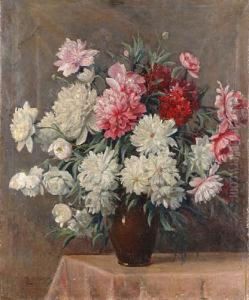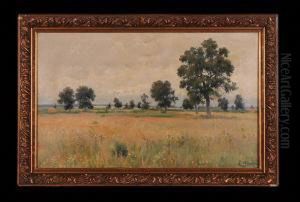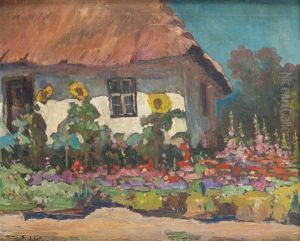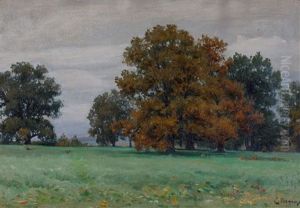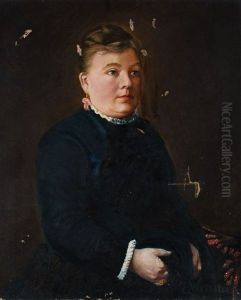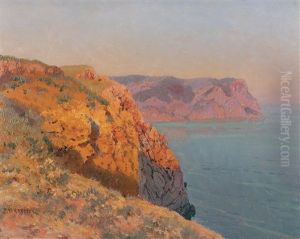Eugeniusz Wrzeszcz Paintings
Eugeniusz Wrzeszcz was a Polish artist born on August 24, 1953, in Gdańsk, Poland. His artistic journey began in the vibrant cultural landscape of Poland during the latter half of the 20th century, a period marked by significant political and social transformations in the country. Wrzeszcz's work, deeply intertwined with the evolution of Polish art, navigated through various styles and mediums, showcasing his versatility and profound understanding of art's power to reflect and critique society.
Wrzeszcz's education in art was comprehensive and grounded in the rich traditions of Polish and European art. He studied at the Academy of Fine Arts in Gdańsk, where he honed his skills under the tutelage of renowned Polish artists. This period was crucial in shaping his artistic vision, which combined classical techniques with contemporary themes. His early works were marked by a keen interest in human figures, often exploring the complexities of human emotions and relationships through expressive portraits and dynamic compositions.
Throughout the 1980s and 1990s, Wrzeszcz's art evolved in response to the changing political landscape in Poland, particularly during the Solidarity movement and the subsequent fall of communism. His work from this period reflects a nuanced understanding of the socio-political turmoil of the time, employing symbolism and allegory to comment on issues of freedom, identity, and resistance. Wrzeszcz's ability to capture the spirit of his era, while maintaining a timeless quality in his work, has been a hallmark of his career.
Eugeniusz Wrzeszcz was also known for his contributions to the development of contemporary art in Poland. He participated in numerous exhibitions, both nationally and internationally, and his work is held in several prestigious collections. Beyond his contributions as an artist, Wrzeszcz was a respected teacher and mentor, sharing his knowledge and passion for art with younger generations of artists.
On March 21, 2021, Eugeniusz Wrzeszcz passed away, leaving behind a rich legacy that continues to inspire and influence the Polish art scene. His career, spanning several decades, reflects the dynamic and often tumultuous journey of Polish art through the late 20th and early 21st centuries. Wrzeszcz's work remains a testament to the enduring power of art to capture the human experience in all its complexity.

